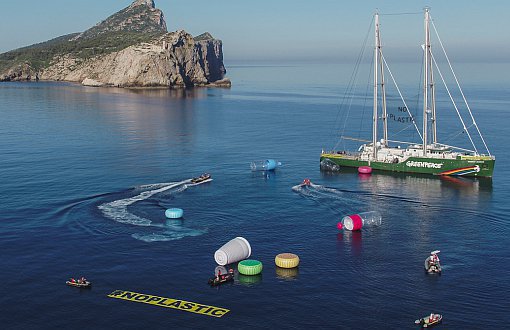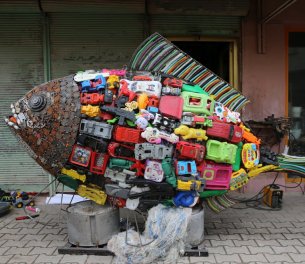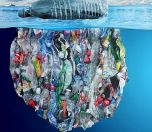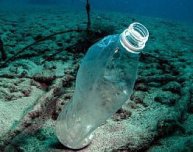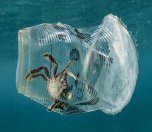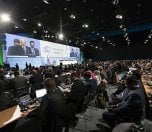* Photograph: Pedro Armestre / Captured in a protest by Greenpeace in Mediterranean
Click to read the article in Turkish / Kurdish
European Union (EU) has reached an agreement regarding the struggle against single-use plastics. The agreement which will introduce an EU-wide ban on single-use plastics is expected to be signed today (December 20).
After the agreement has come into force, the member countries will be obliged to adapt their legislatures to the articles of the agreement in two years. Each member country will amend its constitution to ban the single-use plastics as stipulated by the agreement.
Regarding the agreement, Greenpeace Mediterranean has stated, "Though the agreement is an important step in struggle against plastic pollution, it is still not a sufficient step to completely resolve the plastic crisis."
Greenpeace Mediterranean has listed the positive steps and missing points of the agreement as follows:
Positive steps in the agreement:
* The EU-wide ban on plastic earbuds, plastic plates, plastic eating utensils, plastic beverage mixers, plastic straws, plastic balloon sticks, oxo-biodegradable plastics, foam food and beverage containers.
* The collection of some single-use plastics, including cigarette stubs and fishing equipment, and payment for waste management.
Missing points of the agreement:
* There have been no EU-wide goals to decrease the consumption of single-use plastic food and beverage containers and EU countries have no obligations to set any goals in that regard.
* The period previously set for the goal of collecting 90 percent of plastic bottles separately (from 2025 to 2029) has been extended for four years.
Kevin Stairs: First step for the struggle
Greenpeace EU Chemicals Policy Director Kevin Stairs has made the following statement about the agreement:
"These new EU rules are a great first step to fight the plastic pollution that's choking our rivers and oceans.
"National governments must now commit to holding the producers accountable, and to seriously cutting the plastic production and use that threatens nature and our health."
Deniz Bayram: Turkey should ban them as well
Legal Counsel at Greenpeace Mediterranean Deniz Bayram has made a call to Turkey to follow suit and ban the single-use plastics:
"Plastic pollution is a global problem threatening all seas. The deposit system introduced to the use of plastic bags in Turkey and the discussions about zero waste are all positive indicators. However, plastic pollution is an urgent issue, which requires more effective and decisive steps.
"Turkey is in the very early phases of its struggle against plastics. For that reason, such steps taken by the European Union to struggle against plastic pollution should be taken as an example by Turkey. The single-use plastics, which have been banned in the EU, should be banned in Turkey as well." (PT/SD)




